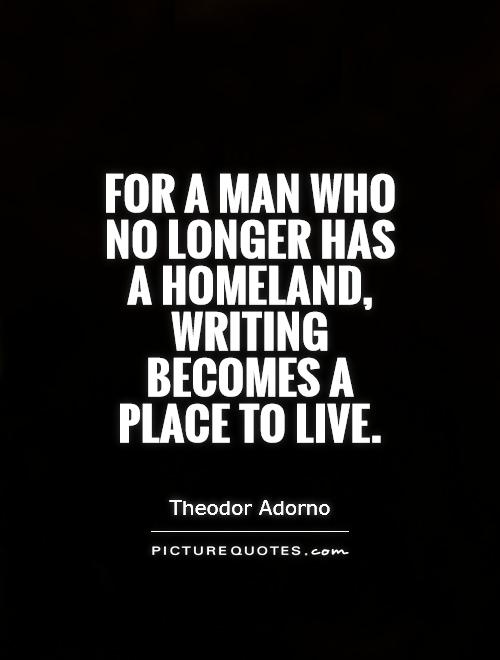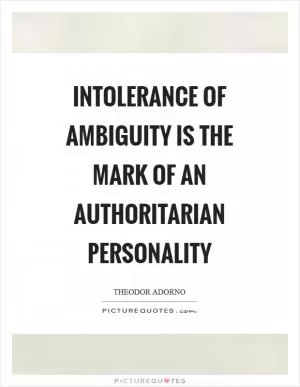For a man who no longer has a homeland, writing becomes a place to live

For a man who no longer has a homeland, writing becomes a place to live
The quote "For a man who no longer has a homeland, writing becomes a place to live" holds particular significance in the context of Theodor Adorno, a German philosopher, sociologist, and musicologist who was forced to flee his homeland during World War II due to his Jewish heritage and opposition to the Nazi regime. Adorno's experiences as a refugee and exile profoundly shaped his understanding of the role of writing and intellectual work in the face of displacement and loss.Adorno's work is characterized by a deep sense of alienation and dislocation, reflecting his own experiences of being uprooted from his homeland and forced to navigate the complexities of life as a refugee. In his seminal work "Minima Moralia: Reflections from Damaged Life," Adorno explores the themes of exile, displacement, and the loss of a sense of belonging in a world marked by violence and destruction. For Adorno, writing becomes a means of grappling with the trauma of displacement and creating a space for reflection and resistance in the face of overwhelming adversity.
In the absence of a physical homeland, Adorno finds solace and refuge in the act of writing. Writing becomes a form of resistance against the forces of oppression and a means of reclaiming agency and autonomy in a world that seeks to silence and marginalize those who do not conform to its norms. Through his writing, Adorno is able to construct a new sense of home and belonging, one that transcends the limitations of geography and nationality.
Moreover, Adorno's writing serves as a form of testimony and witness to the atrocities of war and the horrors of totalitarianism. By bearing witness to the suffering and injustices of his time, Adorno seeks to challenge the prevailing narratives of power and domination and to create a space for critical reflection and resistance. In this sense, writing becomes a form of political engagement and ethical responsibility for Adorno, a way of speaking truth to power and advocating for a more just and humane world.












 Friendship Quotes
Friendship Quotes Love Quotes
Love Quotes Life Quotes
Life Quotes Funny Quotes
Funny Quotes Motivational Quotes
Motivational Quotes Inspirational Quotes
Inspirational Quotes